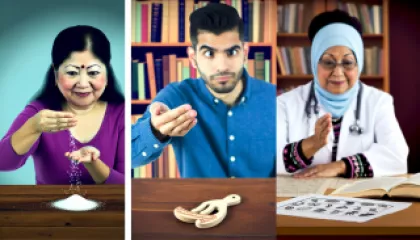A Beginner's Guide to Starting Drama Therapy
1 year ago
Drama Therapy
Drama therapy is a therapeutic approach that uses theatrical techniques to promote psychological healing and growth. As a beginner, starting drama therapy might seem challenging due to its unique blend of arts and psychology. However, the process can be simplified by understanding the core concepts and steps needed to get started. This guide is designed to walk you through the process of drama therapy, from understanding its principles to implementing therapeutic techniques.
Mastering the Mind: The Ultimate Guide to Understanding Superstitions in Psychology
1 year ago
Psychology Behind Superstitions
Superstitions, those seemingly irrational beliefs in supernatural influences affecting our lives, are a fascinating part of human psychology. From avoiding walking under ladders to throwing salt over one's shoulder, superstitions vary widely across cultures yet share common psychological roots. This guide will delve into the psychology behind these beliefs, offering insights into why we hold onto them and how they affect our behavior.


